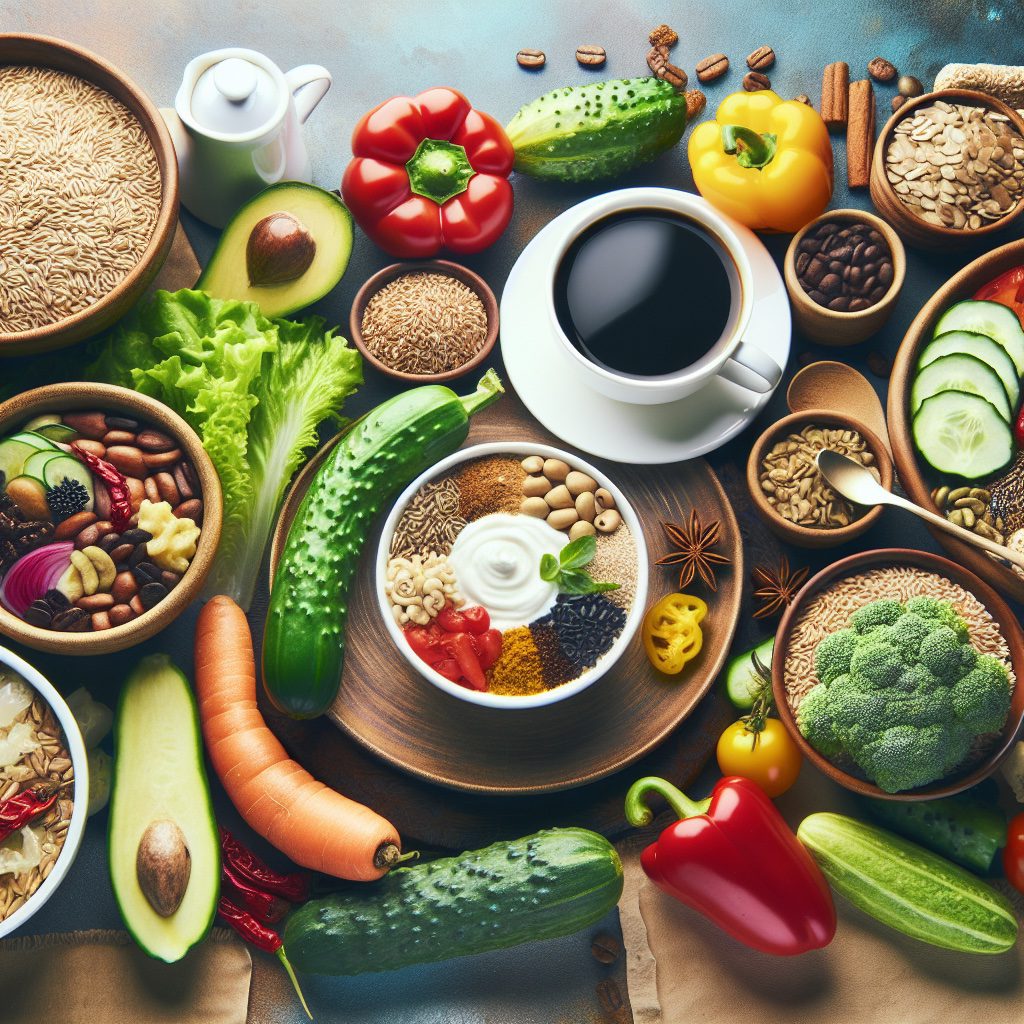The Role of Sustainability in Herbal Tea
Sustainability in the herbal tea market isn’t just a trendy buzzword – it’s a philosophy that beautifully mirrors the journey toward mind-body balance many of us are seeking. When we choose sustainable herbal teas, we’re not just sipping a warm, comforting beverage; we’re participating in a much larger story of harmony between people and planet. Sustainable tea production embraces organic farming methods where plants thrive without harmful pesticides or synthetic fertilizers, growing as nature intended. Just imagine fields of chamomile, mint, and hibiscus flourishing in rich, living soil, tended by farmers who understand that healthy ecosystems produce the most potent healing herbs. This approach resonates deeply with those of us who prioritize what goes into our bodies. After all, how can we achieve true wellness while consuming residues that disrupt our natural balance? Ethical sourcing takes sustainability even further, ensuring fair compensation for tea farmers and harvesters, many of whom have preserved traditional growing methods for generations. By listening to your body’s needs through mindful tea consumption, you’re simultaneously honoring the earth that provides these healing plants. Local sourcing reduces the carbon footprint of your daily cup, while organic certification guarantees that your moment of self-care doesn’t come at the expense of soil health, water purity, or wildlife diversity. The beauty of embracing sustainability in your herbal tea choices is that it aligns perfectly with holistic health practices – what heals you can heal the planet too. Your daily ritual becomes a powerful statement about the future you wish to create, one sustainable sip at a time.
Challenges in the Herbal Tea Market
While sustainable herbal tea offers tremendous potential for planetary and personal health, the industry faces significant challenges in fully embracing these practices. Climate change impacts are perhaps the most pressing issue, with shifting weather patterns affecting growing regions worldwide. Many herbal tea producers report increasingly unpredictable harvests, compromising both quantity and quality of beloved herbs like chamomile, mint, and lemongrass. This instability is compounded by water scarcity challenges that threaten production in key growing regions, as herbal tea cultivation typically requires substantial irrigation.
The economic reality also creates barriers to sustainability. Many farmers find themselves caught in a difficult position where market prices don’t adequately reflect the true cost of implementing eco-friendly farming practices. When production costs rise for sustainable methods but consumer prices remain competitive, something has to give – and unfortunately, it’s often environmental considerations that get sacrificed.
Pesticide use remains problematic in conventional herbal tea production, with residues potentially making their way into your cup. This practice not only affects the purity of your tea but contributes to soil degradation, reducing fertility and threatening future harvests. Each time we choose conventionally grown herbs over organic options, we indirectly support systems that may deplete rather than regenerate our soil resources.
Deforestation presents another serious concern, especially in regions where natural forest is cleared to make way for larger tea plantations. This habitat destruction disrupts local ecosystems and eliminates carbon sinks that help regulate our climate – making your herbal tea choice surprisingly significant in the bigger environmental picture.
Benefits of Ethical Sourcing
The good news? Choosing ethically sourced teas creates ripple effects of positive change throughout the entire supply chain. When we select herbaltea products that prioritize sustainability, we’re supporting farming methods that protect rather than deplete water resources. We’re standing with producers who maintain biodiversity instead of creating monoculture plantations. We’re advocating for fair wages and safer working conditions for the hands that tenderly harvest your favorite herbal blends.
Consider this: every purchase is essentially a vote for the kind of future you want to see. By selecting sustainably produced herbal teas, you’re helping preserve delicate ecosystems where these plants naturally thrive. You’re reducing exposure to harmful chemicals – not just for yourself but for farming communities and wildlife. You’re supporting agricultural methods that work in harmony with nature rather than against it.
At HerbalsZen, we believe deeply in the connection between personal wellness and planetary health. This philosophy of harmony between humans and nature guides all our sourcing decisions. When you listen to your body’s needs and choose herbs that support your wellness, you can simultaneously honor the earth that provides these healing plants. The challenges facing the herbal tea market are substantial, but so is the power of informed consumers making ecofriendly choices.
The herbal tea industry stands at a crossroads where sustainable practices aren’t just ethical choices but necessary adaptations for future survival. As climate pressures intensify, producers embracing regenerative agriculture and water conservation will likely be those who thrive in the changing market landscape. By supporting these forward-thinking producers now, we help create the sustainable future we wish to see – where our daily self-care rituals contribute to rather than detract from environmental health.
The Future of Sustainable Herbal Tea
As we look toward the future of herbal tea, one thing is becoming increasingly clear: sustainability isn’t just nice to have—it’s becoming essential for the industry’s survival and growth. The numbers tell a compelling story: the herbal tea market is projected to grow from USD 4341.2 billion in 2024 to an impressive USD 7354.33 billion by 2032. This remarkable expansion reflects not just growing popularity, but a fundamental shift in consumer consciousness around what we drink and how it impacts our world.
What’s driving this growth? Increasingly, it’s you—the mindful consumer who understands that each purchase casts a vote for the kind of world we want to create. Today’s tea drinkers are demanding transparency about sourcing, cultivation methods, and the social impact of their favorite brews. This shift in consumer behavior is pushing the entire industry toward more ecofriendly practices, from biodegradable packaging to regenerative farming methods that actually improve soil health rather than depleting it.
The beauty of this movement is how perfectly it aligns with listening to your body’s wisdom. When you choose organic herbal blends free from pesticides and artificial additives, you’re honoring your body’s need for pure, natural nourishment. This same choice simultaneously honors the earth, the farmers, and the delicate ecosystems where these healing plants grow. It’s a perfect embodiment of the harmony between humans and nature that lies at the heart of true wellness.
Small brands like HerbalsZen are often at the forefront of this sustainable revolution, pioneering practices that larger companies later adopt. We believe that making sustainability accessible is crucial—it shouldn’t be a luxury to make choices that protect our planet’s future. By focusing on ethically sourced ingredients and environmentally conscious production, we’re working to ensure that your daily self-care ritual contributes to collective healing.
The future herbaltea market will likely see even more innovation in sustainability. Expect to see advances in water-conserving cultivation, carbon-neutral processing, and even regenerative agricultural practices that help reverse climate change while producing the healing herbs we love. Companies that embrace these practices now aren’t just being altruistic—they’re positioning themselves for long-term success in a market increasingly defined by ecological awareness.
What can you do to be part of this positive transformation? Start by becoming curious about your tea’s journey. Where were these herbs grown? Under what conditions? Who harvested them, and were they fairly compensated? These questions might seem small, but collectively, they drive market-wide changes that ripple throughout global supply chains.
Making eco-friendly choices doesn’t have to be overwhelming. Begin with simple steps—choose organic when possible, support brands that prioritize sustainability, and perhaps most importantly, slow down enough to truly appreciate each cup. This mindfulness connects you deeply to both your own needs and the broader impact of your choices.
As you sip your herbaltea today, remember that this small daily ritual is part of something much larger. It’s a moment of listening to your body’s voice while simultaneously speaking up for the planet’s future. When we make self-care a daily habit that includes consideration for the earth, we create a beautiful symmetry between personal and planetary wellness. Let your tea be not just a beverage but a bridge—connecting your health journey with the health of our shared home, sip by sustainable sip.




